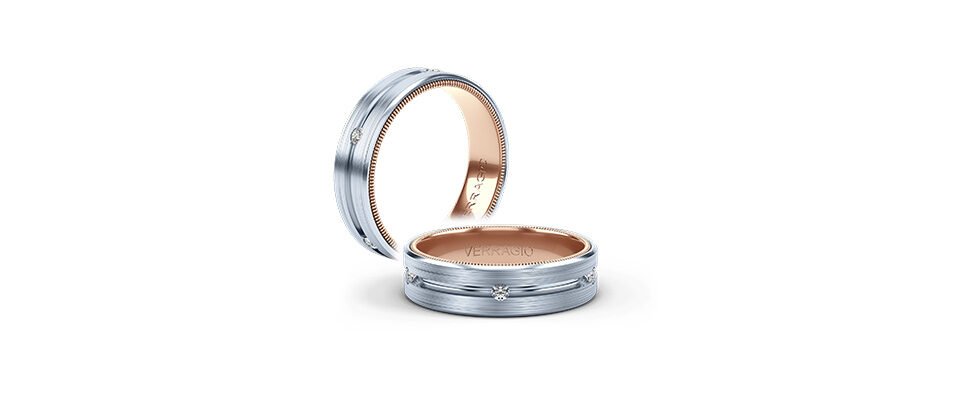We know that the person proposing should pay for the engagement ring, but who pays for the wedding bands? The answer isn’t so cut and dry. According to WeddingWire, it’s typical for the couple to pay for each other’s wedding bands, but you may be surprised about how traditions have changed over time. Read on to find out more about marriage traditions when it comes to paying for wedding rings.
- Marriage Traditions and Etiquette — According to tradition, the bride pays for the groom’s wedding band along with a gift. The groom is normally the proposer, so he pays for the wedding band and engagement ring. The engagement ring can be one of those classic yellow gold engagement rings, or it can be something totally unique and modern. However, it may not be financially feasible for the bride to pay for the groom’s wedding band. Perhaps because the groom spent more money on the engagement ring, it might not make financial sense for him to pay for another ring on top of the engagement ring. Couples need to communicate and budget together regarding both the rings and the actual wedding planning. Setting these expectations can help ensure a happy wedding and married life together.
Get Yellow Gold Engagement Rings for Her
- Sharing Finances — As you two move towards a married life together, you’ll need to talk about how you will share finances or not. If you’re already splitting everything down the middle, you may decide the easiest thing to do is simply split everything down the middle when it comes to the rings and the rest of the wedding, too. If someone earns more than the other in the relationship, you may decide that the person earning more pays slightly more than the other. As for how much more the person earning more should pay, that’s a conversation you two can negotiate for each other’s best interest.
- Paying for the Wedding — Traditionally, the bride or bride’s family normally pays for the wedding venue, wedding vendors and most of the services and products during the ceremony. The bride will pay for a wedding day gift for her partner. The groom or groom’s family typically pays for the officiant and marriage license. The groom will pay for a wedding day gift for his partner. The groom’s family normally pays for the rehearsal dinner and honeymoon, but most couples today pay for their own honeymoon. Many couples decide to do a honeymoon registry for people to contribute.

Source: Dragon Images/Shutterstock.com
- Expectations for the Bride — The bride and her family may combine resources to pay for the bridesmaids’ gifts and her partner’s wedding band. Her family may look at men’s wedding bands with her and help her decide or partially pay for the band as well. The bride normally gives a gift to not only the groom but her parents as well for taking part in the ceremony and for paying for the bulk of the wedding. If the bride requires her bridesmaids to have proper hair and makeup done, it’s proper etiquette for the bride to cover the cost of makeup and hair for her bridesmaids.
View Gorgeous Wedding Rings for Women
- Expectations for the Groom — Just like the bride is expected to pay for her own wedding dress, the groom is also expected to buy his own wedding attire. Although some grooms will pay for their groomsmen’s attire, it’s not very common. Bridesmaids are also expected to pay for their own bridesmaids’ dresses. He may pay for her wedding band, or he may also work with his parents to find wedding rings for women to get the bride her wedding band.

- LGBTQIA+ Couples — According to a survey from WeddingWire, the breakdown for who pays for what varies for LGBTQIA+ couples, who pay for 61 percent of wedding expenses themselves, while their parents pay for 37 percent.
- Breaking Tradition — Today, many couples buy and decide on matching wedding bands as an investment together. However, there’s no right or wrong way to buy rings. Choosing how to buy wedding rings is a personal choice for each couple. It’s up to you both to decide what works best for you as a couple.
